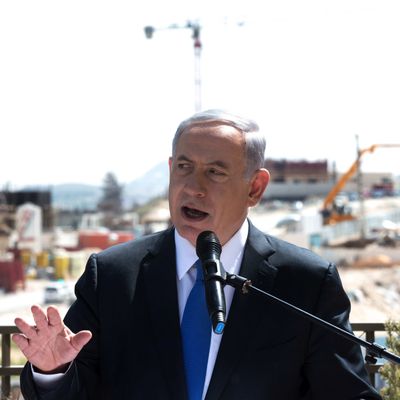
Had it occurred before November 8, today’s U.S. abstention on an otherwise unanimous U.N. Security Council resolution declaring Israeli settlement activity on the occupied West Bank illegal would have been an eye-raising but predictable expression of the Obama administration’s frustration with an Israeli government that seems to be inching toward a formal abandonment of a two-state solution to the country’s relations with Palestinians.
But that’s not how the deal went down. The abstention, representing the first time the U.S. has failed to use its veto to quash Security Council resolutions on this subject, came the day after President-elect Donald Trump — who earlier named the strongly pro-settlement David Friedman the next ambassador to Israel — warned the administration not to take this step. Indeed, Trump personally lobbied the president of Egypt, who had originally sponsored the resolution, to postpone the vote, but it was reintroduced by four other countries. Meanwhile, Israeli prime minister Bibi Netanyahu chose to make the issue a test of U.S. fidelity to its commitment to treat Israel as a close ally.
The escalation of this controversy both in Israel and in the U.S. makes one wonder whether Trump and Netanyahu might (after Trump’s inauguration, anyway) exploit the occasion to change both nations’ positions on the underlying conflict. U.S. pressure has long kept Netanyahu from bending to the demands of many of his right-wing allies to abandon the two-state solution once and for all and declare sovereignty over the occupied territories. If Trump abruptly moves away from the two-state solution himself, hard-core settlement supporters could find themselves pushing on an open door when demanding a formal green light for Israeli expansion.






























